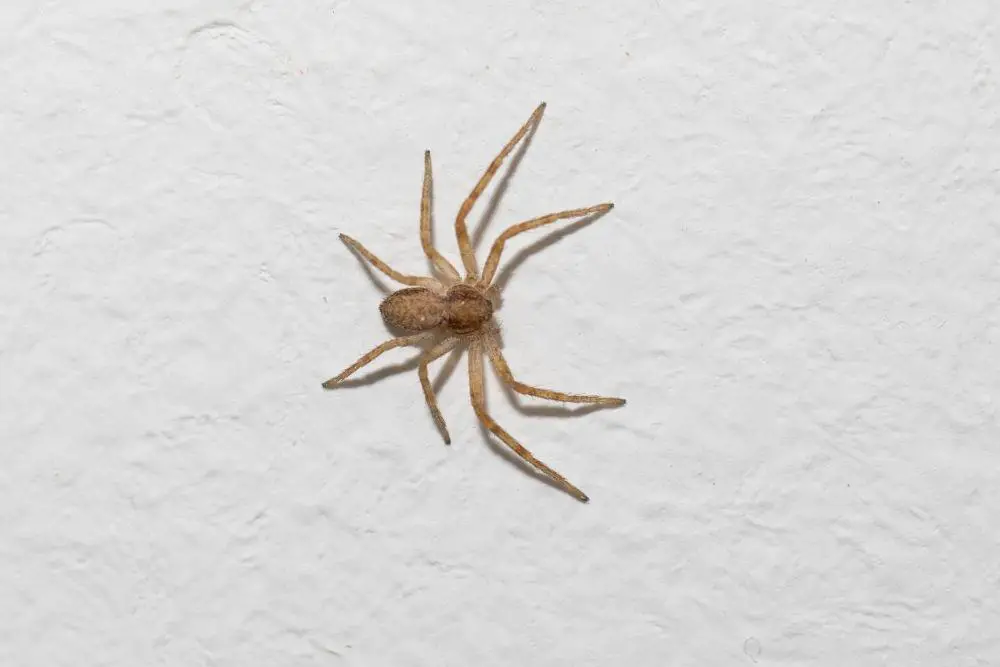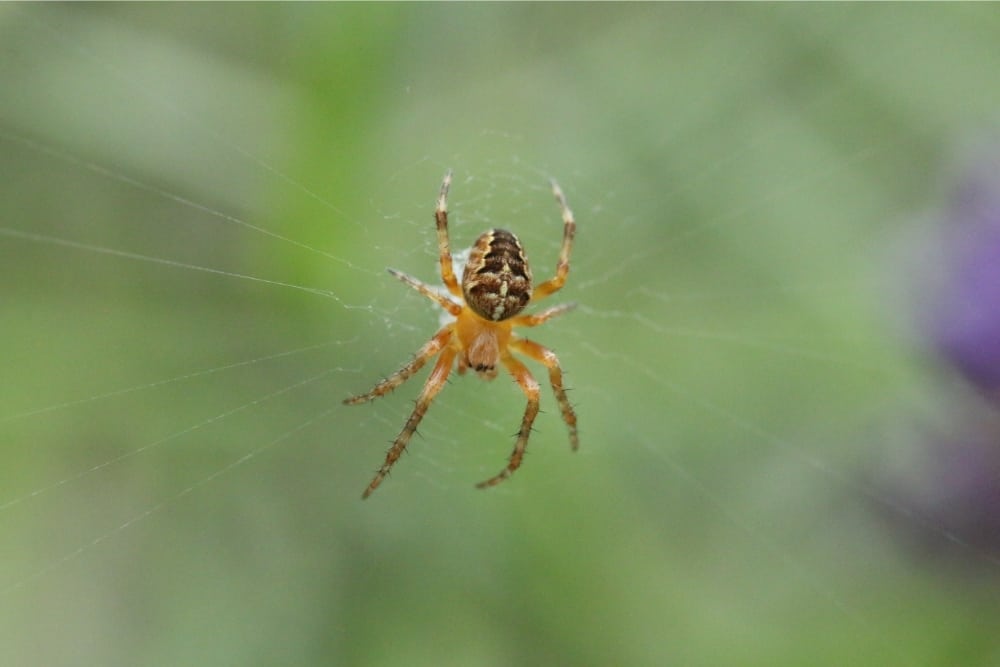posts and pages could include affiliate links which may result in earnings for the site. As an amazon associate, we earn from qualified purchases.
The ominous patience of spiders in all the dark corners of our houses, garages, and sheds gives them an almost immortal vibe. Their stillness tells us they’re in no rush, and their bony, deathhand bodies look to be an appendage of the reaper itself.
Heck, some of them can even reanimate after drowning, but mythological countenance aside, spiders are very much mortal beings.

As long as they’re not the poisonous kind, spiders are actually great helpers during the summer. They catch all the irritating fruit flies, houseflies, blue bottle flies, etc, keeping them from laying maggot eggs in our pets’ food bowls and in our food waste.
But here’s the thing…though they don’t live forever, spiders rarely leave after a single season.
So, if you were hoping the spiders would either die or pack up their webs and hit the old dusty trail once they’ve sucked all the flies of summer dry, you’re out of luck.
Eight-Legged Freeloaders — Just How Long Do Spiders Live Exactly?
Typical variants of house spider usually live for about 1–2 years, which is a pretty good lifespan in the world of creepy-crawlies and doomy-danglies.
Although spiders are arachnids rather than insects, the two animals share very distant, common ancestors, yet most insects live exceedingly short, seasonal lives.
Besides a few anomalies, such as some species of wood beetles (that can live for 40 years!), insects barely ever survive a full revolution around the sun.
Female spiders of certain species may live even longer than a year. It’s been documented that females go on to live upward of 3 years!
That’s some pretty decent staying power, but those extra golden years can only be enjoyed in a safe indoor space away from predators.
Spider cannibalism is usually the reason that females of the species will outlive the males. Unless the male is particularly wily, the female will consume him before, during, or after mating — it’s a dog eat dog spider eat spider world out there!
Even if they avoid a cannibalistic fate, male spiders of certain species are hardwired to die after passing on their genetic code anyway.
Is 3 Years The Limit for Common House Spider Life Expectancy?
While it’s rare for a common house spider to live longer than 3 years, in the right conditions it’s absolutely possible for them to do so, but species is just as, if not more, important when it comes to the life expectancy of a spider.
Some species of arachnids are simply built to last. Take the barn funnel weaver, for instance. If they find a nice, cozy corner to set up shop in, they can live as long as 7 years — we should start asking them for rent!
What About Non-House Spider Lifespan?
Tarantulas live for an incredibly long time, which is why some people think that they make great pets.
Sure, a dog’s cuddly and loveable, but realistically, it will only live for between 10 and 13 years, and the last few of those years aren’t exactly pretty.
A tarantula, on the other hand, could be your loyal companion for two decades or so – that’s 20 years!
The goliath bird-eater, the biggest spider on the planet, belongs to the tarantula family, and in optimal conditions, it can live as long as 25 years.
Luckily for us, this absolute monster of a spider lives in the rainforest regions of northern South America exclusively.
We’re not going to run into one chowing down on a songbird when we’re fetching the lawnmower from the shed — phew!

What’s The Oldest Spider On Record?
Close relatives of tarantulas, trapdoor spiders are known to live as long as 20-odd years, but one in particular, known as Number 16, took scientists by surprise with her unwillingness to leave this earthly plane behind.
Spider Number 16 was discovered during spider population research in 1974 in the Central Wheatbelt region of Western Australia. She died in 2018 at the ripe old age of 43 years old! And guess what…she didn’t even die from old age.
Unfortunately (or fortunately, depending on where you stand with spiders), she was ousted by a deadly wasp sting. Who knows how long the Number 16 train could have kept rolling on if that murderous wasp hadn’t come by — the mind boggles.
When Are Spiders Most Likely To Show Up In Your Home?
Although spiders can really help the pest haters out there keep a clean house in summer, it’s not the snacks that draw them into our homes.
Spiders typically start looking for an entry point around October and September, after summer has been and gone, the reason being, many species don’t like the cold.
When the rusted and gilded leaves of autumn start to fall, spiders feel the temperature drop, hit the road, and head for cover.
Unless killed or humanely removed, they will remain in your home until winter’s passing at least.
Some may decide it’s best to move on when the weather becomes more temperate, but there’s a good chance they’ll like their new digs so much that they’ll stay as long as possible.
How To Keep Spider Squatters Out of Your Home
There are no foolproof ways to completely keep spiders out of your home, garage, and shed, but there are measures you can take to encourage them to take refuge elsewhere.
Citrus
Don’t throw out that lemon peel; you can use it to ward off spiders by rubbing it around your window frame and doors.
Peppermint
Spiders also detest the potent scent of peppermint. I’d recommend diluting some peppermint oil in water, then giving all the usual web locations a spritz. You can buy the concoction pre-made here.
Conkers
A lot of people don’t know this, but spiders really don’t like chestnuts, and as chestnuts fall from their spiky enclosures in autumn, they’re readily available just in time for the great spider migration.
Close Windows
Reducing their points of entry is a no-brainer.
Turn Lights Off When Possible
Spiders may seem like totems of darkness, but surprisingly enough, they’re drawn to light. Their attraction to luminescence is likely due to the fact that a lot of prey like moths and flies will also be heading towards the light.
How Long Do Spiders Live – A Spidery Summation
There you have it, folks; most house spiders will live for 1–3 years, with the females living much longer than males, largely due to spider cannibalism.
Certain tarantulas can live up to 25 years, but the oldest spider on record was a trapdoor spider called Number 16 that, amazingly, survived for 43 years!
More Spider Reading: Spiders and Pergolas or Catching Wolfies
